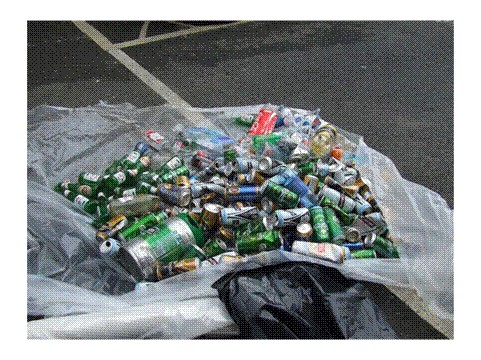Age Restricted Sales – Businesses
The Isle of Wight Trading Standards Service has a duty to enforce the legislation surrounding the sale of age-restricted products. These products include alcohol, tobacco, solvents and knives.
Tobacco Display Ban
- As of the 6th April 2012, large stores (over 280 sq metres3) will be banned from permanently displaying tobacco products. Smaller stores are not required to comply until 2015.
- The tobacco could be hidden by a curtain, sliding doors, shutters or over the counter units.
- Apart from during a sale of tobacco, the display can only be visible for restocking, maintenance, cleaning, training or if a customer asks for information about a product.
- A new offence will be created in that it will be illegal to show tobacco to someone who is under 18.
- Non-compliance with the new law is a criminal offence. Any person, including shop managers and shop assistants, found guilty of these offences is liable on summary conviction in a magistrates' court to a fine not exceeding level 5 (£5,000 at the time of publication) on the standard scale, or imprisonment for a term not exceeding six months, or both or on conviction on indictment in the Crown Court to imprisonment for a term not exceeding 2 years, a fine or both.
- Price lists must be in black Helvetica font (no larger than size 30). There must be no italics or other distinguishing emphasis. It must be titled ‘Tobacco Products Price List’ and be of A3 size. There must only be one.
Tobacco Vending Machines
From 1 October 2011, it will be illegal to sell cigarettes (or any other tobacco product) from an automatic vending machine in England to any person, regardless of their age.
It will also be against the law to display advertisements or pictures of tobacco products on vending machines. The current exemption allowing advertisements on vending machines will no longer apply.
Frequently asked questions
Business Advice Leaflet
English Tobacco Display Draft Amending Regulations
What is test purchasing?
In order to ascertain whether businesses are complying with the law, the Service carries out test purchasing exercises each year. A test purchasing exercise is where a young person attempts to purchase an age restricted product under our supervision. When they attempt the purchase, the young person should be asked for identification to prove they are old enough to buy it.
What happens if we fail a test purchasing exercise?
Failing a test purchase can have serious consequences for the individual that made the sale as well as the business. The individual or/and the business could be prosecuted or have their licence reviewed.
What can I do to prevent an underage sale?
- Keep a refusals register – this shows that you are aware of attempted underage sales and could form an important part of your defence if you face prosecution.
- Ensure staff are trained regularly and the training is recorded.
- Use the Challenge 21 concept. This is when staff ask anyone they believe to be 21 or under for identification. It makes it easier to judge age and there is less risk of making an underage sale. Some premises choose to adopt Challenge 25 or even Challenge 30.
- Only accept a passport, driving licence or card with the PASS logo as identification and examine it closely.
What are we doing to help retailers?
We work closely with other agencies such as Licensing colleagues and the Police to combat underage drinking. We recently participated in a Community Alcohol Partnership scheme in Sandown in which patrols of Police and Trading Standards Inspectors confiscated a large amount of alcohol from young people in the town over a six month period.

Business Advice – Age Restricted Sales
ERWIN (Everything Regulation Whenever It’s Needed)
Age Restricted Products and the relevant ages
Please note: If you require specific advice on this subject, please contact the Trading Standards Service for further assistance.
Page last updated on: 14/05/2012





